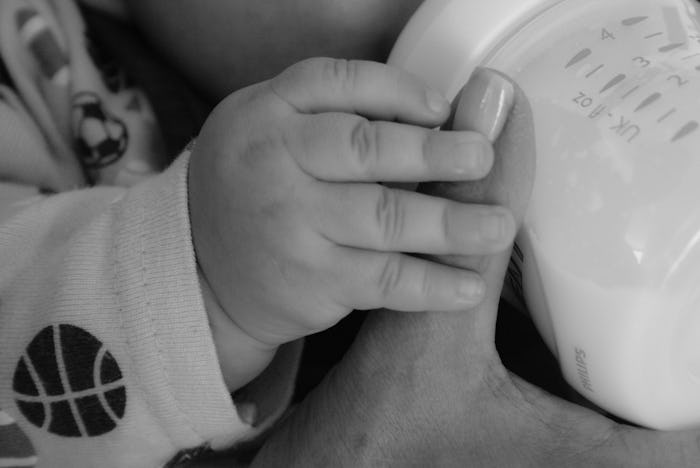Life

11 Ways You Are Hurting Your Ability To Increase Your Milk Supply
As a new nursing mom, it's hard to figure out how to get your baby to latch on properly, making you worry if your baby is eating enough. For most moms, as long as their babies are gaining weight, everything should be on the right track. But, what if you find that your milk supply is dwindling? Even worse, what if you are committing some of the ways you are hurting your ability to increase your milk supply, and you didn't even know it?
Breastfeeding is a process that runs on supply and demand. The more you nurse (or pump, or express) the more milk your body makes. If you aren't nursing regularly, or if you are ingesting something that can inhibit your milk production, you will have to work even harder to get your body to start producing a sufficient amount of milk again.
If your baby is losing weight, it is a sign that you aren't producing enough breast milk. Another important sign, according to Kelly Mom, is if your baby has less than four or five sopping wet diapers per day. If you do have low supply, talk to your doctor or lactation consultant for ideas on how to make more milk. And, in the mean time, read on to see if you may be unknowingly doing things that can limit your milk production.
1You're Taking Allergy Or Cold Medications
According to Parents, pseudoephedrine, an ingredient found in many over-the-counter allergy and cold medications has been shown to decrease breast milk production in new lactating mothers. However, the medicine is not likely to affect a well-established milk supply.
2You're Drinking Too Much Caffeine
Large amounts of caffeine can cause dehydration, which Very Well noted can affect the amount of breast milk your body makes. Excessive amounts of caffeine can also be passed to your baby causing irritability and problems sleeping.
3You're Starting Birth Control Pills
Today's Parent warned that starting hormonal birth control before your baby turns four months can cause a significant decrease in the milk supply of some nursing moms. Stopping the birth control can help increase your supply, but you should only do so after speaking to your doctor, and deciding on a different form of birth control.
4You're Eating Certain Herbs And Spices
Sage, peppermint, oregano, lemon balm, parsley, and thyme can decrease breastfeeding milk flow when taken in large quantities, according to Parents.
5You're Trying To Get Pregnant Again
According to Very Well, the hormones your body produces when you get pregnant while breastfeeding can cause a decrease in your current milk supply.
6You're Scheduling Your Feedings
If you have your baby on a scheduled feeding pattern, such as every three hours, your breasts will be full longer causing your body to make less milk, according to Today's Parent. The more often you empty your breasts, the more milk your body will produce.
7You're Supplementing With The Bottle
If you are supplementing your baby with formula or a bottle of breast milk, your body may decrease the amount of milk it produces. Pumping when you are supplementing with a bottle can increase or maintain your supply, according to Today's Parent.
8You're Under Stress
Very Well warned that psychological stress can cause a decrease in your milk supply. This can be stress about breastfeeding itself, or outside factors that cause you stress such as health, finances, marriage, or work.
9You're Smoking
Your milk supply can take a hit if you are a smoker, according to the Mayo Clinic. Nicotine decreases milk production, and Kelly Mom warned that smoking can also negatively affect let-down.
10You're In The Midst Of Sleep Training
Babies who sleep throughout the night are a Godsend for tired moms. However, not nursing your baby overnight can cause your milk supply to drop, according to Today's Parent. Your levels of prolactin, the milk-making hormone, is also higher during night feeds. Less prolactin can also contribute to a drop in milk supply.
11You're Drinking Alcohol
Drinking too much alcohol not only affects your let-down, but it can change the way your breast milk tastes causing your baby to refuse to nurse, according to Very Well. Alcohol may also pass into your breast milk putting your baby's health at risk.